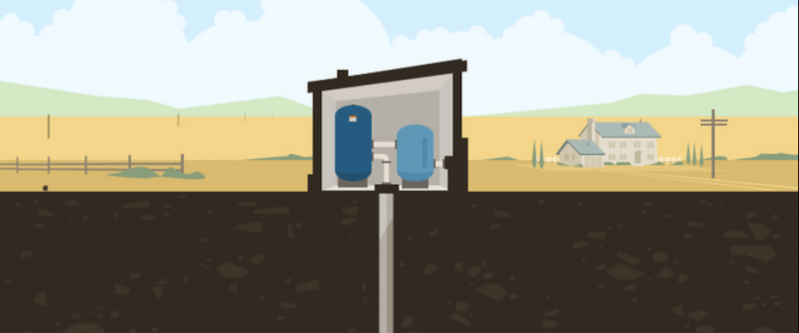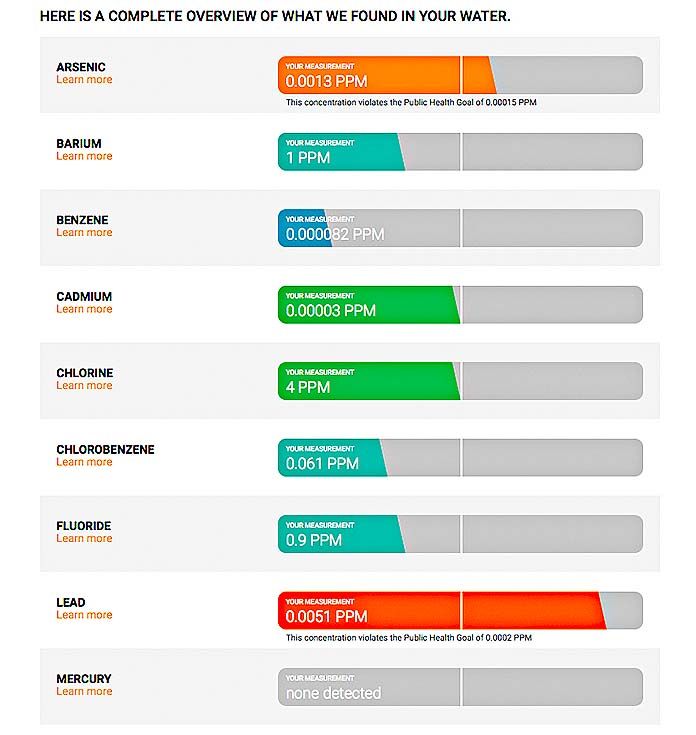Startup Helps People Find Out What They're Drinking
Published on by Investment Matchmaking Manager, Employee at water filtration company in Early Stage
John Pujol and Susane Amrose, both from Berkley, formed a startup called SimpleWater and launch Tap Score, water-testing and product recommendation service.
 Customers order their Tap Score testing package online for $199, then fill testing bottles with tap water and mail them to the nearest laboratory in the Tap Score network.
Customers order their Tap Score testing package online for $199, then fill testing bottles with tap water and mail them to the nearest laboratory in the Tap Score network.
"The long-term vision is that people can take more control of their own water," said Pujol, who serves as SimpleWater's CEO. Lead may be among the most dangerous hazards, but it's far from the only threat looming in aquifers and water pipes. "There's a lot of new contaminants in our water supply, and people are becoming more aware of that. A lot of these contaminants are on-premises issues."
The labs test for more than 100 potential contaminants—lead, mercury, arsenic, and a host of less pronounceable pollutants—and send the results to SimpleWater for analysis.
The company then prepares and digitally delivers a personalized plain-English, graphic-rich report. This details what's in the water, where it may have come from, and how levels compare to health standards and regulations; then it breaks down treatment options, if necessary, even recommending appropriate commercial products.
 For example, to remove arsenic, which naturally occurs in groundwater around much of the world, or nitrates, commonly leached from agricultural runoff or septic systems, the company might suggest an under-sink reverse osmosis filter.
For example, to remove arsenic, which naturally occurs in groundwater around much of the world, or nitrates, commonly leached from agricultural runoff or septic systems, the company might suggest an under-sink reverse osmosis filter.
Prices can range from a couple hundred dollars for a budget system, to nearly $1,000.
But Pujol says these point-of-use systems represent an affordable way of avoiding a wide range of harmful contaminants, even when compared with buying bottled water.
The company bases its recommendations on certifications, performance metrics, expert and consumer reviews, and in-house technical analyses, Pujol adds.
In fact, arsenic is something the company knows particularly well.
SimpleWater was founded in 2014 after securing a one-year startup license for a community-scale arsenic-remediation technology called ECAR (electrochemical arsenic remediation).
One problem with arsenic is that the particles are too small for ordinary filters to work.
ECAR was developed at Berkeley in 2005 by Amrose, civil and environmental engineering professor Ashok Gadgil, and Berkeley Lab staff scientist Robert Kostecki.
The technology involves electrifying submerged iron plates to accelerate rusting. Arsenic in the water naturally bonds to the rust, forming a larger particle that sinks to the bottom for safe removal.
Commercialization of SimpleWater's ECAR-based product, ArsenicVolt, is on hold after $300,000 in funding from the U.S. Environmental Protection Agency fell through. However, an Indian company with its own license is already deploying the technology at a rural high school in West Bengal.
SimpleWater's current testing-based business model could be expanded in the future to encompass ECAR again, finances permitting. Amrose remains on board as a scientific adviser, and the company is negotiating with Berkeley Lab to secure a longer-term license.
In the meantime, Pujol has high hopes for Tap Score. The service is all about empowerment, he says, something today's consumers have come to expect—particularly when it involves their health. "You don't need to wait for people to tell you these important, vital statistics," he says.
Source: Phys.org
Media
Taxonomy
- Startups
- Treatment
- Contaminants
- Testing
- Laboratory
- Contaminant Control